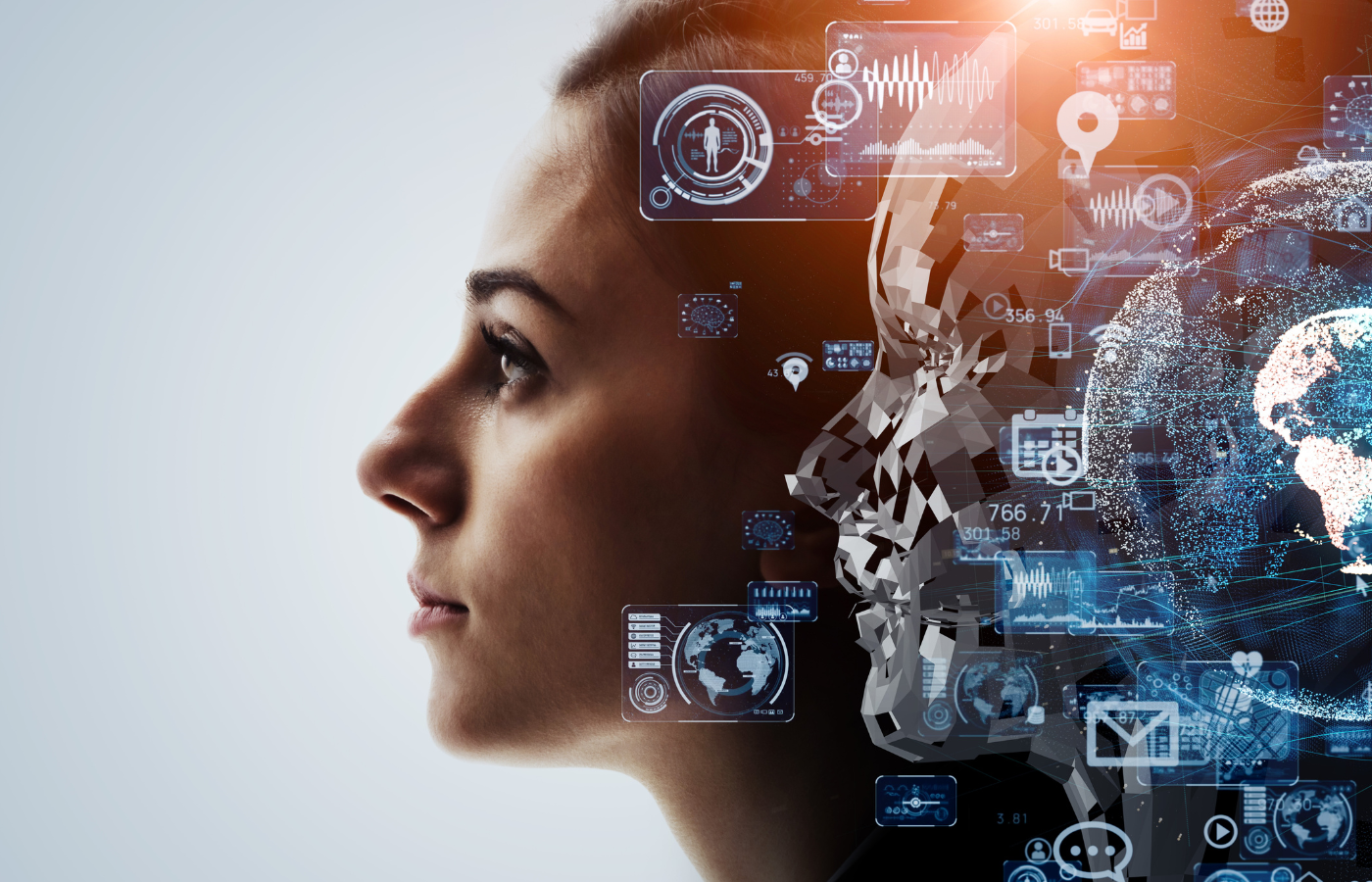Artificial Intelligence (AI) represents one of the most significant technological advancements of our time. As a field of computer science focused on creating machines that can perform tasks requiring human intelligence, AI encompasses a wide range of applications and technologies. From enhancing everyday conveniences to revolutionizing industries, AI is transforming the way we live and work. This article explores the foundational concepts of AI, its current applications, and future prospects, highlighting its impact and potential across various sectors.
Artificial Intelligence Overview
Artificial Intelligence refers to the simulation of human intelligence in machines that are programmed to think and learn like humans. These machines are designed to perform tasks such as recognizing speech, making decisions, solving problems, and understanding natural language. AI is broadly categorized into two types:
Narrow AI: Also known as Weak AI, this type refers to systems designed to perform specific tasks. Examples include voice assistants like Siri and Alexa, recommendation algorithms used by streaming services, and customer service chatbots. Narrow AI is highly effective within its domain but lacks general intelligence.
General AI: Also known as Strong AI, this type of AI aims to possess generalized human cognitive abilities. General AI would be capable of understanding, learning, and applying intelligence across a broad range of tasks. While General AI remains a theoretical concept, research continues to explore its feasibility.
Categories of Artificial Intelligence
Artificial Intelligence (AI) can be categorized based on its capabilities and functionalities. Here are the main types:
Narrow AI (Weak AI)
Narrow AI refers to systems designed to perform specific tasks or solve particular problems. These AI systems operate within a limited scope and do not possess general intelligence or adaptability. They are highly effective at their designated functions but lack the ability to generalize across different tasks.
Examples:
- Voice Assistants: Siri, Alexa, and Google Assistant.
- Recommendation Systems: Netflix or Amazon product suggestions.
- Chatbots: Customer service bots that handle specific queries.
General AI (Strong AI)
General AI, also known as Strong AI, aims to replicate human cognitive abilities. This type of AI would be capable of understanding, learning, and applying intelligence across a wide range of tasks, similar to human beings. It has the potential to perform any intellectual task that a human can.
Example:
- Hypothetical AI: AI with the ability to perform diverse tasks and learn from experiences in a manner akin to human intelligence.
Artificial Superintelligence (ASI)
Artificial Superintelligence represents a level of AI that surpasses human intelligence in all aspects, including creativity, problem-solving, and emotional understanding. ASI is a theoretical concept and represents a future stage of AI development where machines have superior cognitive abilities compared to humans.
Example:
- Theoretical Concept: Advanced AI with the potential to outperform human intelligence in every field.
Reactive Machines
Reactive machines are a basic form of AI that respond to specific stimuli or inputs with predetermined outputs. They do not have memory or the ability to learn from past experiences. Reactive machines are designed for specific tasks and operate based on programmed rules.
Example:
- IBM’s Deep Blue: The chess-playing computer that defeated world champion Garry Kasparov.
Limited Memory AI
Limited memory AI systems can retain and use past experiences to make decisions and improve performance. These systems use historical data to make predictions or adjustments but do not possess long-term memory or a comprehensive understanding of context.
Example:
- Autonomous Vehicles: Self-driving cars that use historical data and real-time inputs to navigate and make driving decisions.
Theory of Mind AI
Theory of Mind AI is an advanced and theoretical type of AI that would have the capability to understand and predict human emotions, intentions, and social interactions. This type of AI aims to achieve a deeper level of interaction with humans by recognizing and responding to emotional states.
Example:
- Future AI: AI with the ability to engage in sophisticated human-like interactions, including understanding and interpreting emotions.
Self-Aware AI
Self-Aware AI represents the ultimate stage of AI development, where machines possess self-awareness and consciousness. This type of AI would have an understanding of its own existence and cognitive processes. It remains a theoretical concept and has not yet been achieved.
Example:
- Hypothetical AI: Advanced AI with self-awareness and a deep understanding of its own existence and capabilities.
Each type of AI has unique characteristics and applications, ranging from specific problem-solving tasks to the pursuit of general intelligence and beyond.
Technologies in AI
Several technologies form the backbone of AI, each contributing to its capability and application:
Machine Learning (ML): ML is a subset of AI that enables systems to learn from data and improve their performance over time without being explicitly programmed. ML algorithms identify patterns and make predictions based on historical data. Techniques such as supervised learning, unsupervised learning, and reinforcement learning are used to train models for various applications.
Deep Learning: A specialized branch of ML, deep learning involves neural networks with multiple layers. These deep neural networks can process vast amounts of data and are used for tasks like image and speech recognition. Deep learning has been instrumental in achieving breakthroughs in areas such as natural language processing and computer vision.
Natural Language Processing (NLP): NLP focuses on the interaction between computers and human language. It enables machines to understand, interpret, and generate human language. Applications of NLP include language translation, sentiment analysis, and text generation.
Computer Vision: This technology allows machines to interpret and analyze visual information from the world. Computer vision is used in image and video recognition, facial recognition, and autonomous vehicles. It involves processing visual data to extract meaningful information.
Robotics: Robotics integrates AI with physical machines to perform tasks that require movement and interaction with the environment. Robotic systems are used in manufacturing, healthcare, and service industries, including autonomous drones and robotic surgery.
Applications of Artificial Intelligence
AI’s versatility is evident in its wide range of applications across different sectors:
Healthcare: AI is revolutionizing healthcare by improving diagnostics, treatment, and patient care. Machine learning algorithms analyze medical images to detect diseases such as cancer and cardiovascular conditions. AI-driven tools also assist in personalized medicine by tailoring treatments to individual patient profiles.
Finance: In the financial industry, AI is used for algorithmic trading, fraud detection, and risk management. AI systems analyze market trends and make trading decisions with high speed and accuracy. Additionally, AI helps in identifying fraudulent activities by monitoring transactions and detecting anomalies.
Transportation: AI is a key driver of advancements in autonomous vehicles and smart transportation systems. Self-driving cars use AI to interpret data from sensors and make real-time driving decisions. AI also optimizes traffic management and improves public transportation services.
Retail: AI enhances the retail experience through personalized recommendations, inventory management, and customer service. Recommendation algorithms suggest products based on past purchases and browsing behavior, while chatbots provide real-time assistance to customers.
Entertainment: The entertainment industry benefits from AI in content creation, recommendation systems, and audience engagement. AI-generated content includes music, art, and scripts, while recommendation engines suggest movies and shows based on user preferences.
Ethical Considerations and Challenges
As AI technology advances, it brings forth several ethical considerations and challenges:
Bias and Fairness: AI systems can inadvertently perpetuate biases present in the data they are trained on. Ensuring fairness and reducing bias in AI algorithms is crucial to prevent discriminatory outcomes and promote equitable treatment.
Privacy and Security: The use of AI often involves handling large amounts of personal data. Protecting user privacy and ensuring the security of data are paramount to maintaining trust and compliance with regulations.
Job Displacement: The automation of tasks through AI can lead to job displacement and changes in the labor market. Addressing the impact on employment and providing retraining opportunities for affected workers is essential for a smooth transition.
Transparency and Accountability: Understanding how AI systems make decisions is important for accountability. Ensuring transparency in AI algorithms and decision-making processes helps build trust and allows for informed oversight.
Future Prospects of Artificial Intelligence
The future of Artificial Intelligence (AI) promises significant advancements, including the development of more sophisticated models and progress toward Artificial General Intelligence (AGI), which aims to replicate human cognitive abilities. AI is expected to integrate with emerging technologies like the Internet of Things (IoT) and blockchain, creating new applications and efficiencies. Ethical considerations and regulatory frameworks will be crucial for ensuring responsible AI development. Overall, AI’s future holds transformative potential across sectors such as healthcare, transportation, finance, and education, reshaping how we interact with technology and improving our daily lives.
Conclusion
Artificial Intelligence is a transformative technology with the potential to revolutionize industries and enhance our daily lives. From advancements in research and applications across sectors to addressing ethical considerations, AI continues to evolve and shape the future. Staying informed about AI developments and understanding its implications will be key to harnessing its benefits while navigating its challenges. As AI technology progresses, its impact on society and the economy will become increasingly profound, driving innovation and redefining the possibilities of the digital age.
Keep an eye for more latest news & updates on Gossips!




